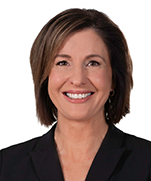Given the highly regulated nature of healthcare, it should come as no surprise that most healthcare providers have a designated compliance officer tasked with overseeing the implementation and management of the organization’s compliance program. Since the Office of Inspector General for Health & Human Services unveiled its original compliance program guidance in the 1990s, having a designated compliance officer has been one of the pillars of an effective compliance program. But, having a defined set of policies and simply designating an individual to oversee their implementation and ensure they are reviewed and updated periodically isn’t sufficient in today’s evolving regulatory landscape. Compliance is about more than building and implementing policies and processes. Successful compliance officers often practice these three habits:
1. Audit Routinely
Effective compliance officers coordinate proactive audits throughout the year. The issues and areas should vary and may include areas identified as a focus by regulators or third-party payers, issues that haven’t been audited in a period of time, new or changes in laws/regulations/reimbursement policies/billing codes, or areas with recent employee turnover. Successful compliance officers don’t just audit one time during the year but make coordinating and overseeing proactive audits an ongoing effort.
2. Build Relationships
The compliance officer is the “face” of the compliance program. Because it’s crucial that people report compliance issues and because the compliance program should permeate all aspects of the organization, having good working relationships with others is important. The goal isn’t for everyone to like you, but for everyone to respect you, perceive that compliance processes are fair and impartial, and trust you to handle compliance issues appropriately. That type of trust and respect isn’t given automatically – it’s earned over time and requires you to engage frequently and consistently with others.
3. Create Training & Reporting Opportunities
The compliance officer can’t possibly know everything that’s happening within the organization. While the compliance officer is critical to the effectiveness of the compliance program, all of the other employees have a critical role to play as well. It’s vital for the success of the compliance program for employees to be able to spot suspected compliance issues, know how to report those suspicions, and feel comfortable reporting suspicions. That requires employees to be well-trained on compliance-related issues and how to report compliance concerns. Successful compliance officers provide not just annual generalized compliance training but also look for ways to provide educational opportunities tailored to the employee’s job duties. They also make sure how to report compliance concerns is well-advertised and promoted frequently within the organization.
This Week’s Podcast
The compliance officer is one of the most important positions within the organization but also one of the most challenging. You’re expected to be a teacher, a coach, a project manager, a good listener, and a role model. For another tip on how to be successful in this role, check out this week’s podcast:


